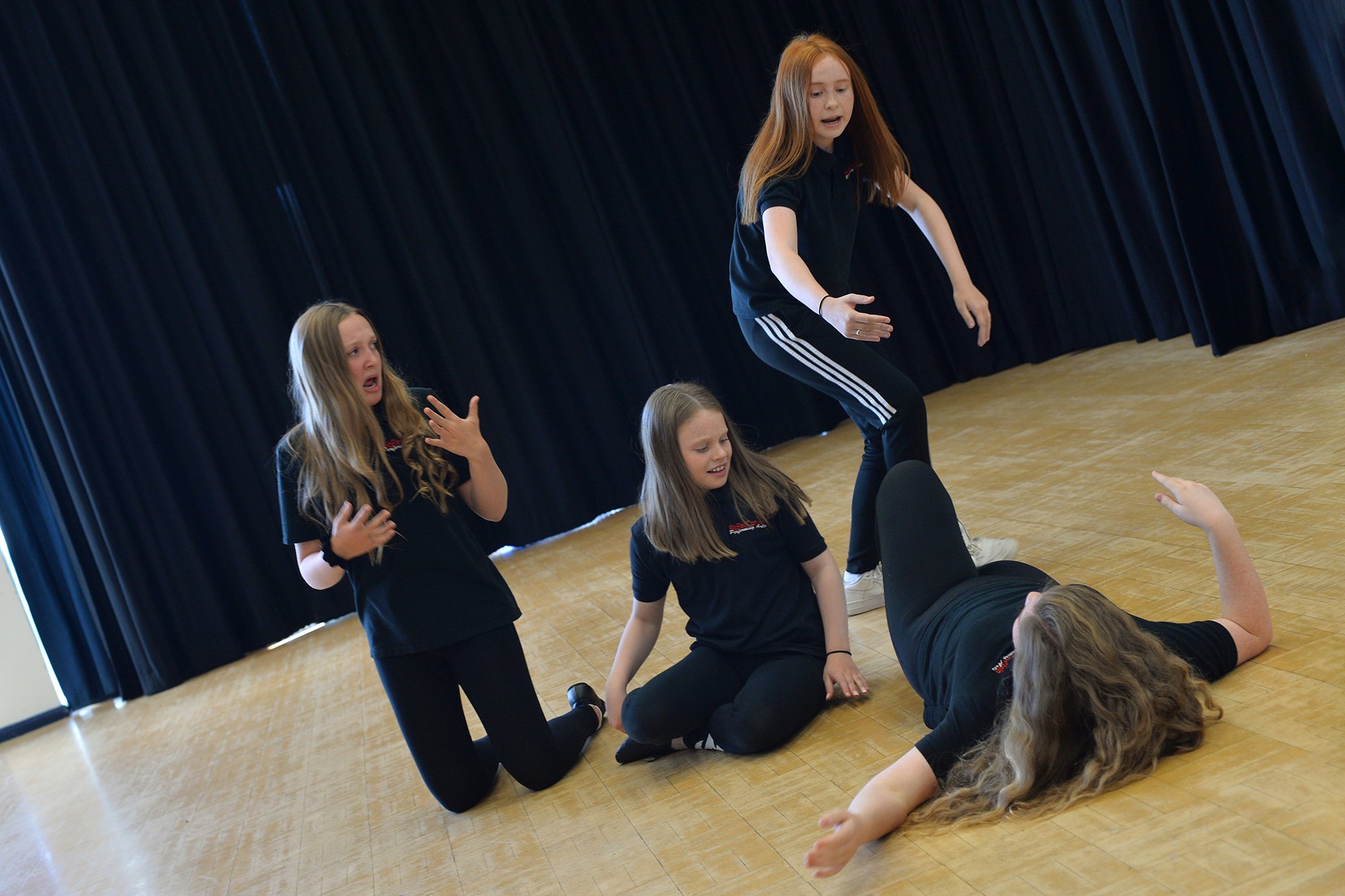/Blog/Su-Exam.jpg)
GESE: Helping learners push their own boundaries

BY: Academic Support Team
20 September 2021
What do you know about Trinity's Graded Examinations in Spoken English (GESE)? GESE is a popular choice for teens on short, intensive courses to evidence learning. True, but who else would benefit from the GESE exam? Well, anyone who’s learning English - and here's why...
When I’ve asked my students about their own personal motivations for learning, they’ve told me that they need English for: finding a good job, or they require it for university, or they enjoy travelling. Another type of reason I hear increasingly often nowadays is that they love English language TV programmes, or online gaming or internet influencers, and they like to be part of the culture and chat to people on the other side of the world.
It doesn’t matter which country the learner comes from or what reason they give; it’s almost always about communication. They are learning English because they want to be able to communicate with others more effectively and easily.
Effective communication is at the heart of the Trinity GESE exams. They are designed in a way that encourages and rewards the candidate who can have a conversation with the examiner, asking questions as well as answering them and taking an active role in the discussion. After all, this is what real-life communication is about.
GESE by online delivery
In response to the situation created by COVID-19, Trinity has developed a digital alternative method of offering GESE and ISE speaking and listening exams. Candidates are now able to take their one-to-one assessments online with an experienced Trinity examiner via video conference in registered exam centres. See the video above to learn more.
Yet, so many students believe that learning a language is about studying all the grammar rules, knowing the translation of reams of vocabulary and being able to pass exams. Then, after years of hard work and the achievement of good grades, learners can find themselves struggling in an English-speaking environment.
Below is the story of someone who finds herself in that very predicament.
 Su's Experience
Su's Experience
Su is feeling a mix of nerves and excitement as she arrives in London. Her first challenge is to get from the airport to her new university accommodation. She hopes she can understand what people are saying to her, especially because this is her first time in an English-speaking country, but she’s worked so hard to get here and she’s confident it will pay off.
Her first week on campus is a whirlwind of information and new faces. She’s missing her friends back home but she knows she’ll make new ones here. She’s going to organise her study time carefully so that she can spend the weekends with new friends and occasionally go on trips to explore other parts of Europe. She can’t wait.
In the first seminar, the students are put into groups to discuss topics given by the tutor. Su is relieved to find that everyone in her group is an international student. They start talking but Su quickly realises that she’s struggling to keep up. By the time she’s formulated her thoughts, the conversation has moved on. The other people are so confident! As the weeks go by, she notices that her classmates are forming into groups, going for coffee before the seminars and arranging to meet up at weekends. One day she overhears them planning a weekend trip to Paris. Her heart sinks as she thinks about how much she’s always wanted to go there.
Luckily there are some very nice students in her hall of residence and she has also found a community of students from her own country, which gives her a welcome break from the culture shock. But she could have met them back home. More than that, she’s starting to worry about what she will do next semester. She needs to arrange a placement for her year in industry but how will she even cope with the interview stage, let alone the actual working environment?
She can’t believe it. She worked so hard to get here and was always the top of her class, but now she’s struggling and missing out on the opportunities she’d been so excited about.
Although Su had worked really hard and had studied English the best way she knew how, she wasn’t really prepared for using it. The GESE exams can give someone like her the confidence to communicate. The candidate who performs well in the exam is one who actually has the skills necessary for using English in real world communication. We’ll go back in time and see how Su could have taken a different route in her English learning by looking at a few examples from three of the four GESE stages and seeing how they relate to real world skills.
/Blog/Grade-4-5-6.png?width=234&name=Grade-4-5-6.png)
At Grade 5, one of the possible topics for discussion is Travel. As we know, Su loves visiting new places, and next on her list is Paris. She has been going to English lessons in order to increase her fluency and to feel confident in her ability to meet new people when travelling.
Examiner: Let’s talk about travel. Have you been to any other countries?
Su: Yes, I have. A few years ago I went to France with my family. It’s really amazing. Have you ever been there?
Examiner: Yes, I have. Last year I went to Paris for a few days.
Su: Really? I’d like to go there. I might go next year. I’ve seen many photos of the Eiffel Tower. Did you see it?
Examiner: No, I didn’t have time.
Su: You didn’t see it?? But there are lots of things to do in Paris. I think I’ll go up the tower and to an art gallery because I prefer to see history. I think holidays only at the beach are very boring.
Examiner: Me too.
Here, Su and the examiner respond to what the other says, and the direction of the discussion depends on what emerges. Su’s success does not depend on a rehearsed performance. Even at a low level, she has the communication skills necessary to have an interesting conversation about travel experiences.
/Blog/Grade-7-8-9.png?width=234&name=Grade-7-8-9.png)
At Grade 8, the exam includes the Interactive Phase which begins with the examiner reading a scenario prompt and then the candidate leading a discussion on it. As Su’s English gets better, she’s ready for this level exam.
Examiner: Some new neighbours have recently moved in next door and they’re quite noisy. I don’t know what to do about it.
Su: What sort of noise have they been making?
Examiner: They’ve had a party every weekend since they moved in a month ago.
Su: Every weekend? That’s too much. I think it’s ok to have one or maybe two parties in their new house but I don’t see why they need one every weekend. How loud are the parties?
Examiner: Very! The music sometimes goes on until 3am.
Su: That’s late. What about in the week? Do they play music late then?
Examiner: No, not really.
Su: They’re probably sleeping! Maybe you should wait to see what happens in the next few weeks.
Examiner: Yes maybe, but there is another problem…
The ability to discuss a problem, elicit more information, make relevant comments and work towards a solution are extremely useful skills. It would help Su develop friendships but it would also be invaluable in her studies, such as in collaborative project work. We can also imagine how she would use these skills in a professional environment.
/Blog/Grade-10-11-12.png?width=234&name=Grade-10-11-12.png)
At Grade 10, the exam begins with the candidate giving a formal 5-minute presentation on a topic of their choice, followed by a candidate-led discussion on the same topic.
Su: To summarise, these new technologies will transform our lives in ways which we could not have imagined 50 years ago. Thank you for listening. Do you have any questions?
Examiner: Thank you for a very interesting presentation Su. I share your excitement about the future of technology but I’m wondering about the effect of it on employment. You said it will create jobs for millions of people, but won’t even more people lose their jobs?
Su: It’s true that some jobs such in sectors such as driving and customer service will dramatically reduce and those workers will need to retrain. This will be a problem for a while. However, we can train the next generation in skills which will be increasingly useful in the 21st century workforce. This is happening already.
Examiner: Really?
Su: Yes, I can tell you about a few projects….
Su has chosen a topic related to her field of study as she knows that she will likely have to give some presentations at university and will hopefully be doing the same once she’s found a job in that sector. She feels like she’s also getting interview practice.

.jpg)


Comments & Replies